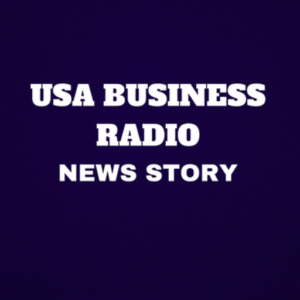By The Harris Poll, Special for USDR
In the midst of the contentious presidential primary elections, The Harris Poll measured how alienated Americans feel. As part of a long-term trend, the last time alienation was measured was in November 2014, when we saw an all-time high in the Alienation Index. The alienation index this year is 70, equal to that in 2014. On the bright side, this is the first year since 2009 that the Alienation Index has not increased.
What is The Alienation Index?
Almost every year since 1966, The Harris Poll has measured how alienated Americans feel and then calculated an Alienation Index based on the results. The questions measure how much, or how little, people feel their interests are heard and addressed by those with power and influence. This year the Harris Poll Alienation Index saw an all-time high of 70 as it did in 2014, compared to 67 in 2013, 63 in 2011, 52 in 2010 and, for reference, 29 in 1966, its inaugural year.
The Index is based on replies to five questions, most of which show positive differences from two years ago.
- 82% believe that the people running the country don’t really care what happens to you, down from 85% in 2014 but still higher than 73% in 2011 and 50% in 2010;
- 78% of all adults believe the rich are getting richer and the poor are getting poorer, compared to 81% in 2014, 80% in 2013, and 73% in 2011;
- 70% believe that most people in power try to take advantage of people like them, compared to 71% in 2014, 69% the year before, and 63% in 2011;
- 68% believe that what they think doesn’t count very much anymore, which hasn’t changed since 2014 and remains higher than 61% in 2013 and 66% in 2011; and,
- 40% believe that they are left out of things going on around them, compared to 42% two years ago, 38% in 2013, and 41% in 2011.
So Who Feels Most Alienated?
As Obama comes to the end of his time in office, there is a shift in the feeling of alienation by political party affiliation. Adults who identify as Republican feel the most alienated, followed by Independents and then Democrats. In 2014, however, Democrats felt more isolated than Republicans, while Independents felt the most isolated of the three. Those with a college degree feel less isolated than those with some college or a high school education or less, a trend we have seen since at least 2013.
Furthermore, there seems to be a difference in alienation by age. Adults age 45-54 have an Alienation Index of 72 and adults age 55-64 have an index of 73, significantly higher than those 18-34 (69), 35-44 (70), and 65+ (67). There is no distinctive difference by gender.
To see other recent Harris Polls, please visit our website, TheHarrisPoll.com.
Want Harris Polls delivered direct to your inbox? Click here!
Methodology
This Harris Poll was conducted online, in English, within the United States between May 31 and June 2, 2016 among 2,019 adults aged 18+. Figures for age, sex, race/ethnicity, education, region and household income were weighted where necessary to bring them into line with their actual proportions in the population. Propensity score weighting was also used to adjust for respondents’ propensity to be online.
All sample surveys and polls, whether or not they use probability sampling, are subject to multiple sources of error which are most often not possible to quantify or estimate, including sampling error, coverage error, error associated with nonresponse, error associated with question wording and response options, and post-survey weighting and adjustments. Therefore, The Harris Poll avoids the words “margin of error” as they are misleading. All that can be calculated are different possible sampling errors with different probabilities for pure, unweighted, random samples with 100% response rates. These are only theoretical because no published polls come close to this ideal.
Respondents for this survey were selected from among those who have agreed to participate in Harris Poll surveys. The data have been weighted to reflect the composition of the adult population. Because the sample is based on those who agreed to participate in our panel, no estimates of theoretical sampling error can be calculated.
These statements conform to the principles of disclosure of the National Council on Public Polls.
The results of this Harris Poll may not be used in advertising, marketing or promotion without the prior written permission of The Harris Poll.
Product and brand names are trademarks or registered trademarks of their respective owners.
The Harris Poll® #54, July 28, 2016
By Allyssa Birth, Senior Research Analyst, and Elise Simon, Research Analyst Intern, The Harris Poll
About The Harris Poll®
Begun in 1963, The Harris Poll is one of the longest running surveys measuring public opinion in the U.S. and is highly regarded throughout the world. The nationally representative polls, conducted primarily online, measure the knowledge, opinions, behaviors and motivations of the general public. New and trended polls on a wide variety of subjects including politics, the economy, healthcare, foreign affairs, science and technology, sports and entertainment, and lifestyles are published weekly. For more information, or to see other recent polls, please visit our new website, TheHarrisPoll.com.
SOURCE The Harris Poll




